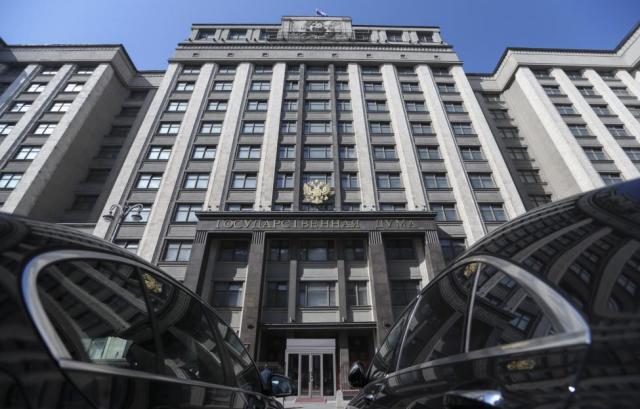The bill clarifies that special facilities will be understood as formations and military units of nuclear support, as well as other facilities of the Russian Armed Forces, the specific list of which will be determined by the Minister of Defense.
MOSCOW, July 15. /tass/. State Duma deputies at the plenary session adopted in the first reading a bill that establishes the legal and organizational basis for ensuring the security of special facilities of the Armed Forces of the Russian Federation.
The document was submitted to the House of Parliament in June this year by a group of deputies led by Andrei Kartapolov, Chairman of the Duma Defense Committee. The bill clarifies that special facilities will be understood as formations and military units of nuclear support, as well as other facilities of the Armed Forces of the Russian Federation, the specific list of which will be determined by the Minister of Defense.
The document also specifies other powers of the Ministry of Defense in ensuring the security of special facilities and their infrastructure. In particular, it is proposed to give the ministry the right to disable drones (both aerial and water), suspend work at special facilities, establish the specifics of regulating the work of employees of special facilities and implement measures to ensure the reliability of personnel. The reliability of personnel means that military personnel have moral, political and psychological qualities, health, professional knowledge and skills that allow them to perform their official duties efficiently, as well as the absence of risk factors that can lead to misconduct. In addition, the Ministry of Defense will be able to determine criteria for classifying objects of the Armed Forces of the Russian Federation as special.
The bill also explains the concept of a special regime for special facilities. It is envisaged that such a regime will include, among other things, the establishment of access and intra-facility regimes (with the approval of controlled zones and a list of prohibited items), a ban on the work of foreign companies and organizations on the territory of special facilities, and a number of other restrictions on the entry and residence of individuals on the territory of facilities, on the departure of military personnel outside its borders, for flights of aircraft and for conducting economic and entrepreneurial activities on the territory of special facilities of the Armed Forces of the Russian Federation.
Powers of military personnel at special facilities
A separate article of the draft law is devoted to the powers of military personnel who serve at special facilities of the Armed Forces of the Russian Federation. In particular, it is proposed to give such employees the opportunity to use physical force, service animals, weapons, military and special equipment to protect special facilities and their infrastructure. What protective equipment can be used in the current situation is determined by the degree of threat to special facilities faced by military personnel. The specific grounds for the use of physical force and weapons, as well as the requirements for the use of protective equipment (for example, when fire can be opened without a warning shot) are specified in the document.
At the same time, it is envisaged that military personnel will have the right to carry out personal searches of individuals, transport and cargo within the framework of access and intra-facility regimes. In addition, the personnel will be able to detain and deliver to the military police department or military unit violators who tried to enter the territory of the facilities.
A separate provision of the draft law proposes to approve measures that must be applied to protect special facilities if there is a threat of sabotage. Under these conditions, it is proposed to establish restrictions on movement within the zones established in connection with the placement of special facilities. In addition, the bill provides for the possibility for military personnel to check personal documents throughout such zones in the event of a threat of sabotage.

